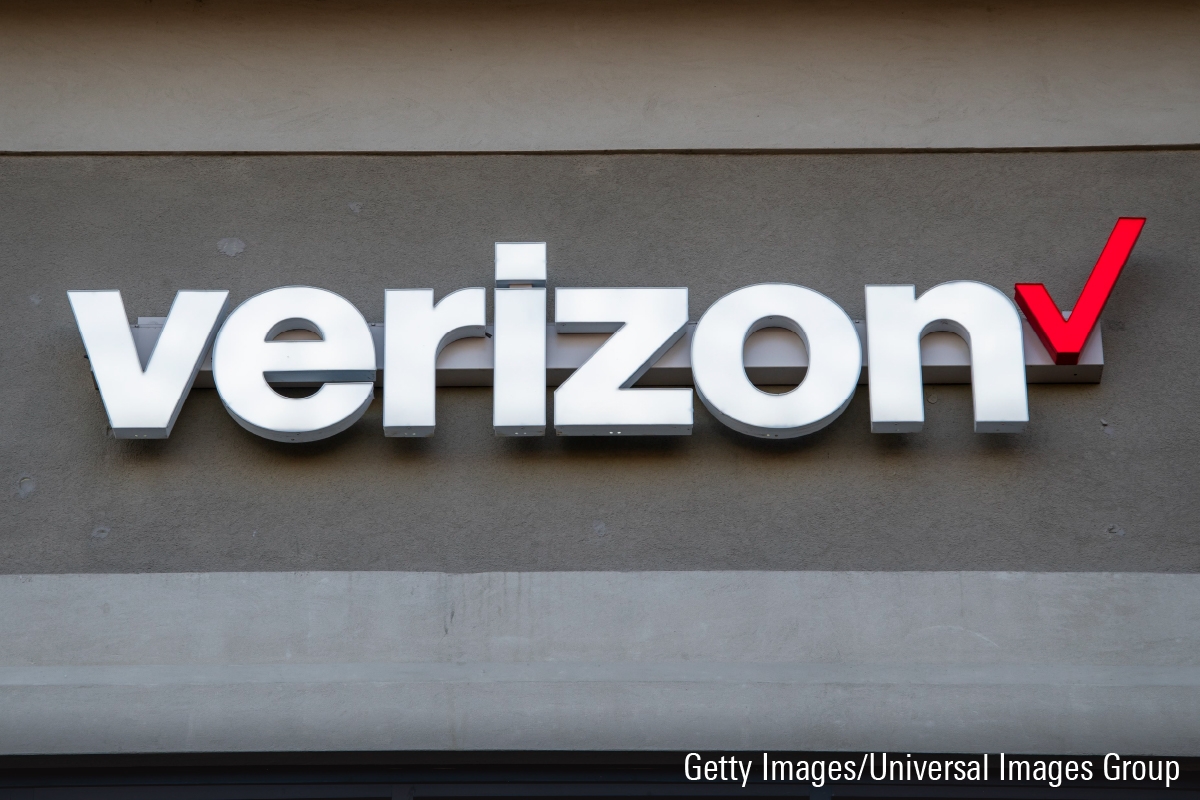A 7% Yielding Dividend Stock With 60% Upside
The stock of this narrow-moat company with reliable cash flows is trading in 5-star range.

Verizon Communications stock VZ has been battered, but Morningstar thinks the drubbing is undeserved. We believe the market is too focused on Verizon’s challenges in adding postpaid consumer wireless customers, and we expect the company to move cash flow higher this year and beyond. The undervalued stock tops our current list of the 10 best dividend stocks to buy and lands among our analysts’ favorite undervalued stocks for the third quarter.
Verizon is primarily focused on the wireless business, where it has taken steps to ensure it remains well positioned, building fiber deeper into major metro areas, acquiring a huge chunk of spectrum in 2021, and ramping up spending to put that spectrum to use. We believe Verizon will deliver consistent results over the long term, but growth is likely to be very modest. AT&T T and T-Mobile TMUS offer comparable services that they sell at similar prices, which we expect will diminish Verizon’s market share lead over time. Verizon has long prided itself on network quality, investing consistently in both wireless and fixed-line technology. The company has built its brand reputation around these networks, attracting a large and loyal customer base.
Key Morningstar Metrics for Verizon
- Fair Value Estimate: $57
- Star Rating: 5 Stars
- Economic Moat Rating: Narrow
- Uncertainty Rating: Low
Economic Moat Rating
Verizon’s narrow economic moat stems from cost advantages in its wireless business and the industry’s efficient scale characteristics. The wireless business produces about 70% of total revenue but contributes nearly all of Verizon’s profits. Despite heavy investment to acquire additional spectrum in the C-band auction and subsequent spending to put that spectrum to use, we estimate wireless returns on capital are still ahead of Verizon’s cost of capital. The benefits of fixed-cost leverage and the difficulty of providing a differentiated wireless offering create an efficient scale advantage in the wireless industry. The massive consolidation across the industry over the past 15 years and the inability of several interested parties to effectively enter the market with their own networks provide evidence of efficient scale.
Read more about Verizon’s moat rating.
Fair Value Estimate for Verizon Stock
Our $57 fair value estimate equates to roughly 8.3 times our 2023 EBITDA forecast. It also implies a 7% free cash flow yield in 2023. We expect free cash flow will increase roughly 20% for the year thanks to sharply lower capital spending as the bulk of the C-band wireless spectrum deployment effort wraps up. We expect Verizon will gradually lose postpaid wireless market share over time as it prioritizes pricing stability rather than growth. But with a rational competitive environment allowing for stable service pricing and increasingly modest phone credits, we expect revenue per postpaid customer will grow steadily in the coming years. We expect consolidated adjusted EBITDA margin will hold roughly flat over the next five years at about 35%, with a dip below that mark over the next two years as the impact of phone promotional credits hits the income statement.
Read more about Verizon’s fair value estimate.
Risk and Uncertainty
Verizon primarily faces regulatory and technological uncertainties. Wireless and broadband services are often considered necessary for social inclusion, in terms of employment and education. If Verizon’s services are deemed insufficient or overpriced, especially if in response to weak competition, regulators or politicians could step in. Regulators also control wireless spectrum licensing, which creates opportunities to influence the wireless industry. Verizon has been a leader in deploying the latest network technologies and it has the resources to make major investments, which we think will insulate it from unexpected changes in the future. Still, wireless technology continues to evolve, enabling more spectrum to be used more efficiently. Technology could eventually lower barriers to entry for companies that have long wanted to enter the business.
Read more about Verizon’s risk and uncertainty.
Verizon Bulls Say
- A steady focus on network strength over the past 15 years has put Verizon in an enviable position. Its wireless network provides the broadest coverage in the industry, and its reputation with customers is sterling.
- With the largest customer base in the U.S., Verizon Wireless is also the most efficient carrier in the industry, delivering far better profitability than its rivals.
- Verizon is relentlessly pushing forward in its core business, expanding its fiber-optic network and deploying 5G wireless technology.
Verizon Bears Say
- Wireless technology is dramatically lowering the cost to build and maintain a network. Rival carriers are rapidly deploying new spectrum and technology to add coverage and capacity. Verizon’s network leadership is a thing of the past.
- Verizon’s fixed-line business is a disaster, earning minimal profits and facing years of high costs supporting declining businesses.
- The company’s balance sheet isn’t the fortress it once was. Paying down debt will limit strategic flexibility and shareholder returns.
Remove the guesswork and make informed decisions faster. Morningstar Investor’s stock ratings, analysis, and insights are all backed by our transparent, meticulous methodology. Learn more and start a seven-day free trial today.
The author or authors do not own shares in any securities mentioned in this article. Find out about Morningstar’s editorial policies.

/s3.amazonaws.com/arc-authors/morningstar/12c6871b-2322-44d8-bd98-0437fa1a0a07.jpg)
/d10o6nnig0wrdw.cloudfront.net/05-09-2024/t_fab10267147f40fb93a1deb8a0b6553b_name_file_960x540_1600_v4_.jpg)
/cloudfront-us-east-1.images.arcpublishing.com/morningstar/E3DSJ6NJLFA5DOKMPQRAH5STMU.png)
/cloudfront-us-east-1.images.arcpublishing.com/morningstar/EGA35LGTJFBVTDK3OCMQCHW7XQ.png)
:quality(80)/s3.amazonaws.com/arc-authors/morningstar/12c6871b-2322-44d8-bd98-0437fa1a0a07.jpg)